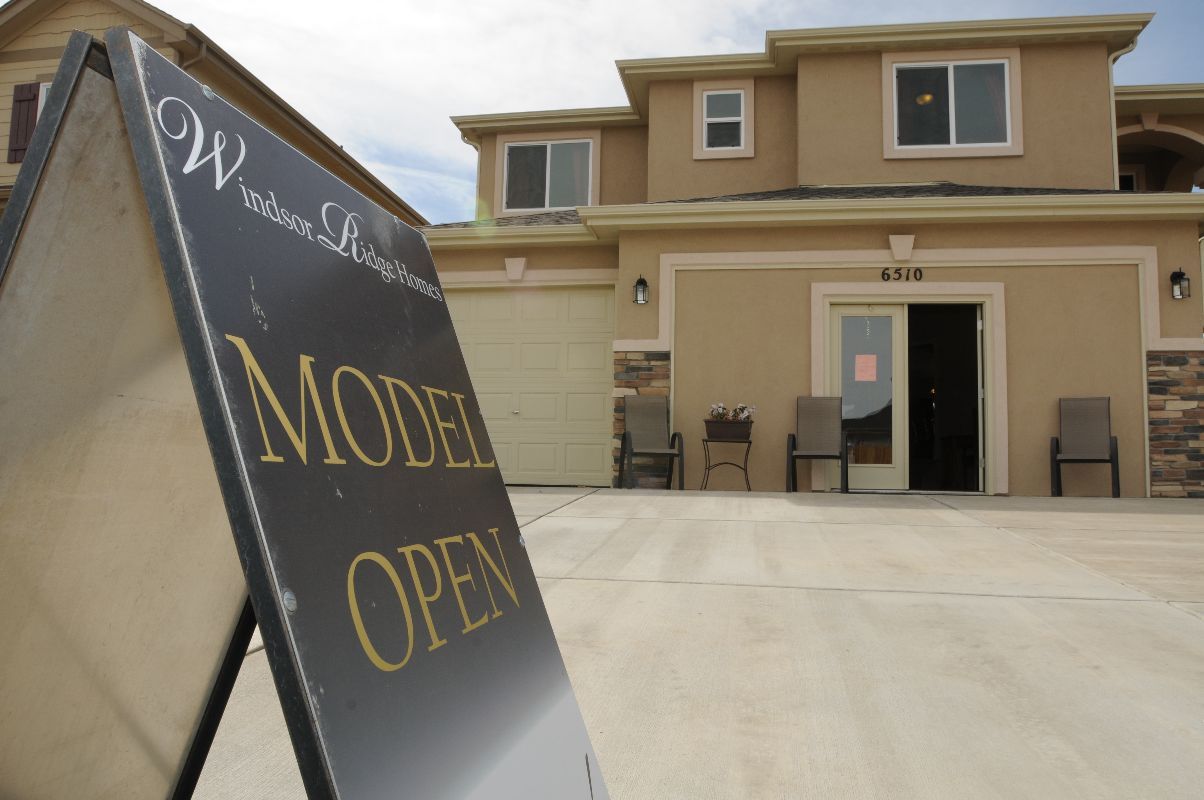KIDS, SCHOOL & EDUCATION


There are about 14,000 dependents of military members attending public schools in Hawaii. All children between 5 (as of July 31) and 18 years of age must attend school, and kindergarten is mandatory in Hawaii.
State law requires all students to meet health examination and immunization requirements before they may attend any public or private school in the state.
School Liaison Officers and Offices
Each branch of service provides military members on Oahu School Liaison Officers to be advocates for military families and to serve as the link between the military communities and Hawaii Public Schools. For assistance, contact your school liaison officer.
Air Force 808-422-3771
Army 808-655-8326
Coast Guard 808-842-2089
Marine Corps 808-257-2019
Navy 808-422-3770
National Guard 808-844-6049
HAWAII DEPARTMENT OF EDUCATION, PUBLIC SCHOOLS
The Hawaii Department of Education has a FAQ page to address questions military families may have at www.hawaiipublicschools.org/ParentsAndStudents/MilitaryFamilies/Pages/FAQs-for-military-families.aspx.
Understanding alignment of attendance: There is one statewide school district in Hawaii. The schools are grouped into Complex Areas: one high school, multiple elementary schools and one or two intermediate/middle schools. To view the schools in each complex, visit www.hawaiipublicschools.org/ParentsAndStudents/EnrollingInSchool/SchoolFinder/Pages/Oahu-Map.aspx.
District Offices: Once you have found a place to live on Oahu, contact your branch school liaison to find out which school your child will attend.
Geographic Exception: If you know where you will be living but are still in temporary quarters, you may request a geographic exception. Contact your branch school liaison for detailed information. More information is available at http://www.hawaiipublicschools.org/ParentsAndStudents/EnrollingInSchool/Pages/Geographic-exceptions.aspx.
All public schools, except charter schools and multi-track public schools, require a school year of 180 instructional days, which includes 915 student instructional hours for elementary school grades and 990 for secondary school grades.
CHARTER SCHOOLS
Charter schools are public schools operating independently from the Department of Education and provide an alternative to regular public schools. Twelve of Hawaii’s 34 charter schools are on Oahu. To learn more, visit www.chartercommission.hawaii.gov.
PRIVATE AND RELIGIOUS SCHOOLS
Hawaii has at least 150 private schools with nearly 100 on Oahu. Tuition at these institutes ranges from about $3,000 to $20,000 for day students. Many of the schools have waiting lists and require entrance tests and interviews before admission. For information on private school, go to www.hais.org.
• Hawaii Catholic Schools: www.hawaiicatholicschools.net
• K12 Academics: www.k12.com/hta
• Private School Review: www.privateschoolreview.com
HOME SCHOOLING IN HAWAII
Hawaii Board of Education regulations include Compulsory Attendance Exceptions recognizing home schooling as a viable and legitimate alternative for child education. This regulation allows parents to home-school their children by officially informing the Department of Education with a notice of intent using Hawaii’s Compulsory Education Form 4140 or a letter containing the child’s name and birthdate, residential address, point-of-contact phone number, grade level and parental signature. For more information, visit www.hawaiipublicschools.org/ParentsAndStudents/EnrollingInSchoolChoosingaschool/Pages/Homeschooling-FAQs.aspx.
Basic home schooling requirements include: narrative progress report and report card, and testing for students in grades three, five, eight and 10.
Home-schooled children may participate in the statewide testing program at the local public school, or parents may arrange for private testing at their own expense.
Parents who home-school their children are responsible for their children’s total educational program including athletics and extracurricular activities. An annual progress report, showing satisfactory progress in all content areas, shall be submitted at the end of each school year. For more information, visit www.hawaiipublicschools.org/teachingandlearning.
Home Schooling and High School: Homeschooled students do not receive a high school diploma. Instead, home-schooled students can earn a high school diploma from one of the state’s Community School for Adults by achieving satisfactory scores on the General Educational Development tests. The diploma reflects high school equivalency through the state Adult Education Program. Call the high school in your residential area or your branch school liaison for details.
Home Schooling Resources
• Hawaii Home School Association: www.hawaiihomeschoolassociation.org
• Home School Legal Defense Association: www.hslda.org/hs/state/HI
REGISTRATION REQUIREMENTS
To enroll parents will need:
• Birth Certificate: An original or certified copy is required.
• Physical Examination: Medical records documenting that a licensed physician has examined the child within one year of school entry date. Or provide an appointment card/date if you could not get an appointment for a physical examination.
• Tuberculosis Clearance: The examination must include a negative Tuberculin Skin Test with the result indicating the millimeter reading (which must be performed by a licensed U.S. physician) and must have been obtained within one year of school entry date.
• Immunizations: All immunizations must meet the minimum age and interval dose. For a complete list, visit http://health.hawaii.gov/docd/vaccines-immunizations/school-health-requirements.
• Transcripts and Documents: A release from the last school attended, which includes an unofficial transcript or latest report card as well as Individualized Education Programs for students with special needs. Most schools do not release official permanent student records until requested by the new school. Parents or guardians are advised to hand-carry copies of report cards, promotion certificates and other materials that will be helpful in enrolling their children.
• Proof of Residence: You will need a rental agreement/military housing documentation/mortgage or a copy of a utility bill (water, electric, gas or telephone). Documents must have the parents’ or guardian’s name(s).
• Legal documents: Power of attorney and/or court documents if not living with parents.
For more information, go to http://www.hawaiipublicschools.org/
School Calendars
All public schools, except charter and multi-track schools, follow a single school calendar. School starts early in Hawaii, usually the last week of July or the first week of August. See the school year calendar by visiting www.hawaiipublicschools.org and clicking on “School Calendar” at the top of the page.
School Transportation
School bus service in Hawaii requires payment. Families who use the bus for transportation can choose from three options for payment: an annual payment plan, a quarterly plan and a one-way bus coupon. For more information, visit https://iportal.k12.hi.us/SBT.
City Bus: The city-operated transit system, called TheBus, is available to students, up to age 19 with a valid high school ID, at a reduced rate. Monthly and annual passes are available. Visit www.thebus.org/Fare/youthFare.asp for more information.
COMMUNITY PROGRAMS
DOE Family Support Services and Parent-Community Networking Centers
The Parent-Community Networking Centers are school-based centers for families, volunteers and communities to identify their strengths, collaborate, make decisions and create partnerships as a part of the Comprehensive Student Support System. Contact your school for more information.
Learning Centers: Hawaii Learning Centers offer high school students who have special interests and talents creative and innovative educational opportunities and choices. For more information, visit www.hawaiipublicschools.org/TeachingAndLearning/SpecializedPrograms/LearningCenters/Pages/home.aspx
.
Electronic Schools: E-School can be accessed on the internet and offers students the opportunity to earn high school credits through the use of multimedia technologies. E-School also provides incoming students with an opportunity to learn more about Hawaii’s history before their arrival in Oahu. For more information, visit http://www.hawaiipublicschools.org/TeachingAndLearning/EducationInnovation/OnlineLearningTools/Pages/home.aspx.
Joint Venture Education Forum: The JVEF is a cooperative venture between the military community and Hawaii Department of Education to improve educational opportunities for military dependents in public school system. It is composed of public school educators and leaders from military commands, government, community and business.
HE’E Hui for Excellence in Education: HE’E seeks to be the focal point for community and parent engagement while serving as a public resource for educational policy. Visit www.heecoalition.org for more information.
Hawaii Board of Education Step Up Hawaii: Step Up! is a community-wide campaign that promotes college and career readiness for Hawaii’s high school students. Visit www.stepuphawaii.org, call 808-586-3349 or email BOE_hawaii@notes.k12.hi.us for more information.
Hawaii School Guide: The overall vision of HSG is for the education opportunities available to Hawaii residents to be transparent and accessible and to help parents make the best possible education choices for their children. Visit www.hawaiischoolguide.com for more information.
Hawaii P-20 Partnership for Education: P-20 aims to improve the quality and equity of Hawaii’s educational pipeline from early childhood through postsecondary education and to prepare a highly skilled workforce for Hawaii industry. Visit www.p20Hawaii.org for more information.
Federal Survey Cards and Impact Aid: Since 1950, the federal government has been paying a share of the cost of educating each child who lives on or whose parent or legal guardian is employed on federal property. These funds, authorized under the Public Law 103-382, provide only a partial reimbursement to the state and school districts affected by federal activity for local tax losses resulting from tax-free federal installations. The amount received is solely based on the number of federally connected students who return their survey cards, which are given out annually in September. All branches of the service strongly encourage military members to complete these cards as these funds are critical to the schools and our children.
Tutor.com: Tutors are online 24/7 and eligible military Families in the Air Force, Army, Marine Corps and Navy can take advantage of this military family program to get help with more than 40 subjects. Visit http://military.tutor.com for more information.
Other Education Links
• Accountability Research Center Hawaii: http://arch.k12.hi.us
• Hawaii State Legislature: www.capitol.hawaii.gov
• Hawaii Parent Teacher Student Association: www.hawaiistatePTSA.org
HIGHER EDUCATION
Education opportunities are abundant on and off base. A trip to your installation education office will show you the numerous options. The following schools offer such programs:
University of Hawaii System: UH was established in 1907 and is fully accredited by the Western Association of Schools and Colleges. The University of Hawaii is the state’s sole public system of higher education. The UH System provides undergraduate, graduate and professional degrees and community programs on 10 campuses and through educational, training and research centers across the state. UH enrolls nearly 60,000 students from Hawaii, the U.S. mainland and around the world. For more information, visit www.hawaii.edu.
UH Campuses
UH Manoa UH Hilo UH West Oahu UH Maui College Hawaii Community College Kapiolani Community College Kauai Community College: Leeward Community College Windward Community College The Shidler College of Business at the University of Hawaii at Manoa
rich cultural landscape. UH Hilo’s bachelor’s and master’s degree programs take advantage of it all.
Honolulu Community College: Near downtown Honolulu with additional facilities for aeronautic, marine, automotive and heavy equipment programs, this innovative community college offers a strong liberal arts curriculum in addition to a wide range of vocational and technological programs.
This college is renowned for its expertise in international management education and is consistently ranked among the best international business programs in the nation by U.S. News and is accredited by AACSB International.
For more information, visit www.shidler.hawaii.edu.
Hawaii Pacific University
Wayland Baptist University
Central Michigan University
University of Oklahoma
Chaminade University of Honolulu
For more information, contact your Installation Education Office or call 808-449-7110.
Installation Education Offices
Hickam 808-543-8053
Schofield Barracks 808-687-7093
Tripler Army Medical Center 808-544-1493
MCBH Kaneohe Bay 808-544-9313
Camp Smith 808-544-9318
Pearl Harbor 808-687-7081
Hawaii State Department of Education JROTC Program Information
Air Force
Aiea High School (Oahu) 808-483-7324
Kailua High School (Oahu) 808-266-7917
Kaiser High School (Oahu) 808-394-1200
Moanalua High School (Oahu) 808-831-7904
Army
Baldwin High School (Maui) 808-984-5656
Farrington High School (Oahu) 808-832-3585
Hilo High School (Hawaii) 808-974-4021, ext. 2263
Kahuku High School (Oahu) 808-293-8910
Kaimuki High School (Oahu) 808-733-4912
Kapaa High School (Kauai) 808-821-4401, ext. 195
Kealakehe High School (Hawaii) 808-327-4300
Konawaena High School (Hawaii) 808-325-4525
Leilehua High School (Oahu) 808-305-3000
McKinley High School (Oahu) 808-594-0400
Mililani High School (Oahu) 808-627-4171
Nanakuli High School (Oahu) 808-668-5823
Punahou School (Oahu) 808-944-5723
Roosevelt High School (Oahu) 808-531-9520
Saint Louis School (Oahu) 808-739-7777
Waianae High School (Oahu) 808-697-9592
Waimea High School (Kauai) 808-338-6810
Waipahu High School (Oahu) 808-528-9506
Marine Corps
Kapolei High School (Oahu) 808-692-8200
Navy
Campbell High School (Oahu) 808-689-3083
Kalaheo High School (Oahu) 808-254-7918
Radford High School (Oahu) 808-421-4214
SHARE:
TAGS:
JOIN OUR NEWSLETTER
Get the latest news and military discounts



